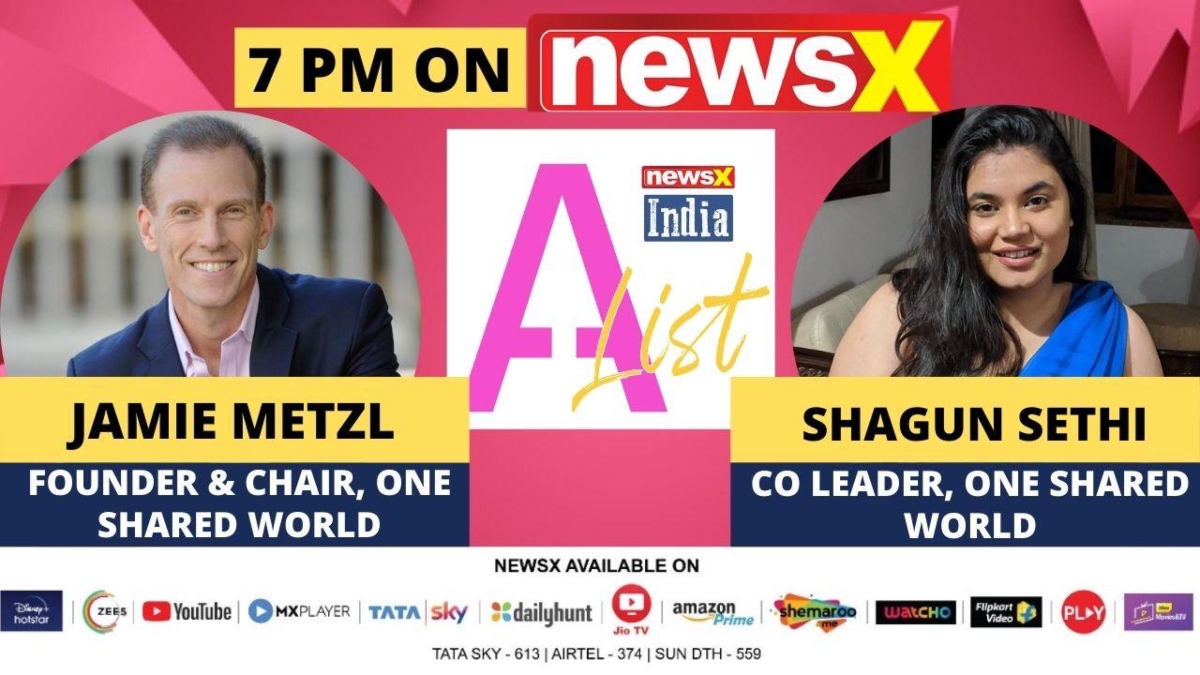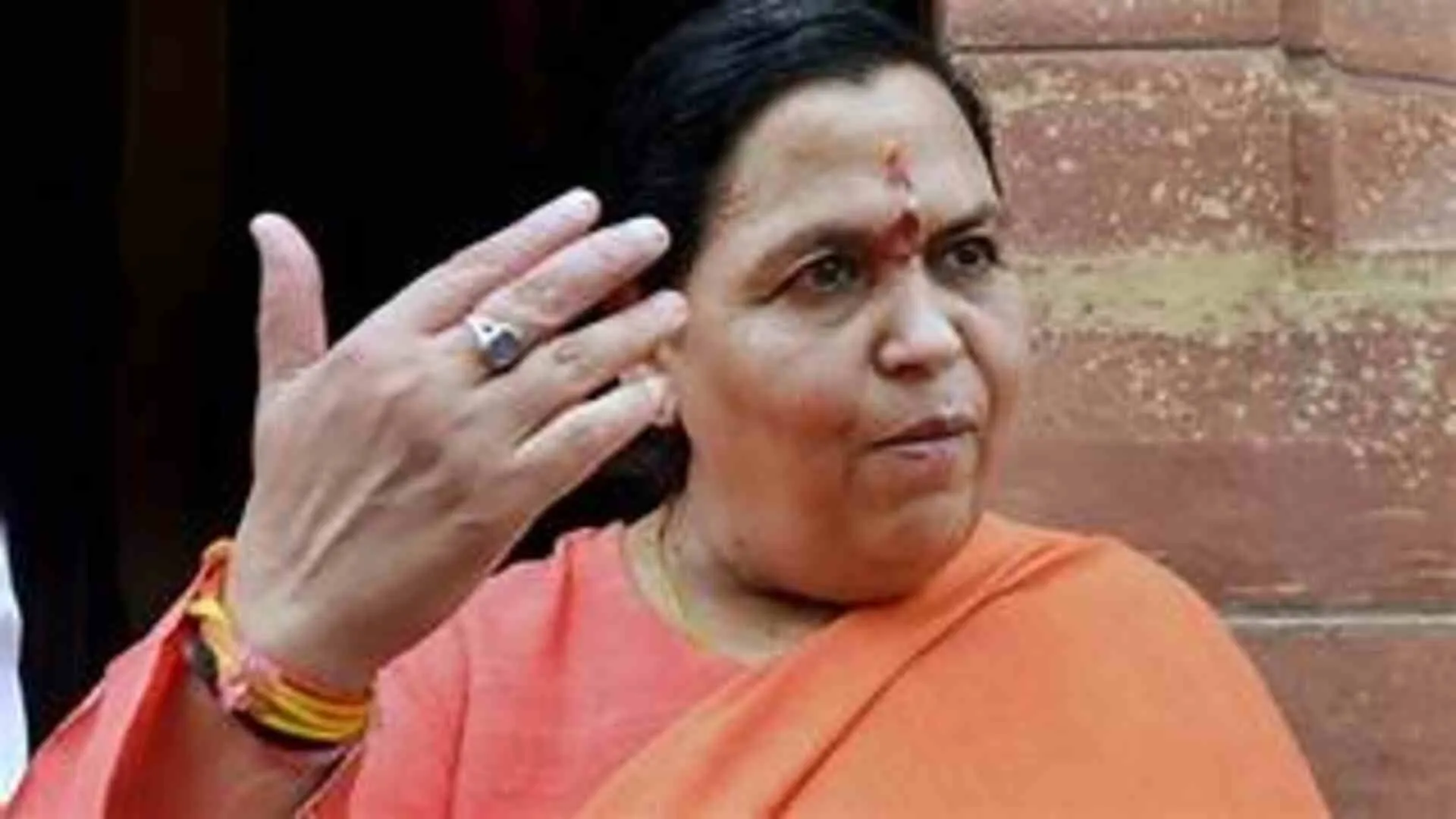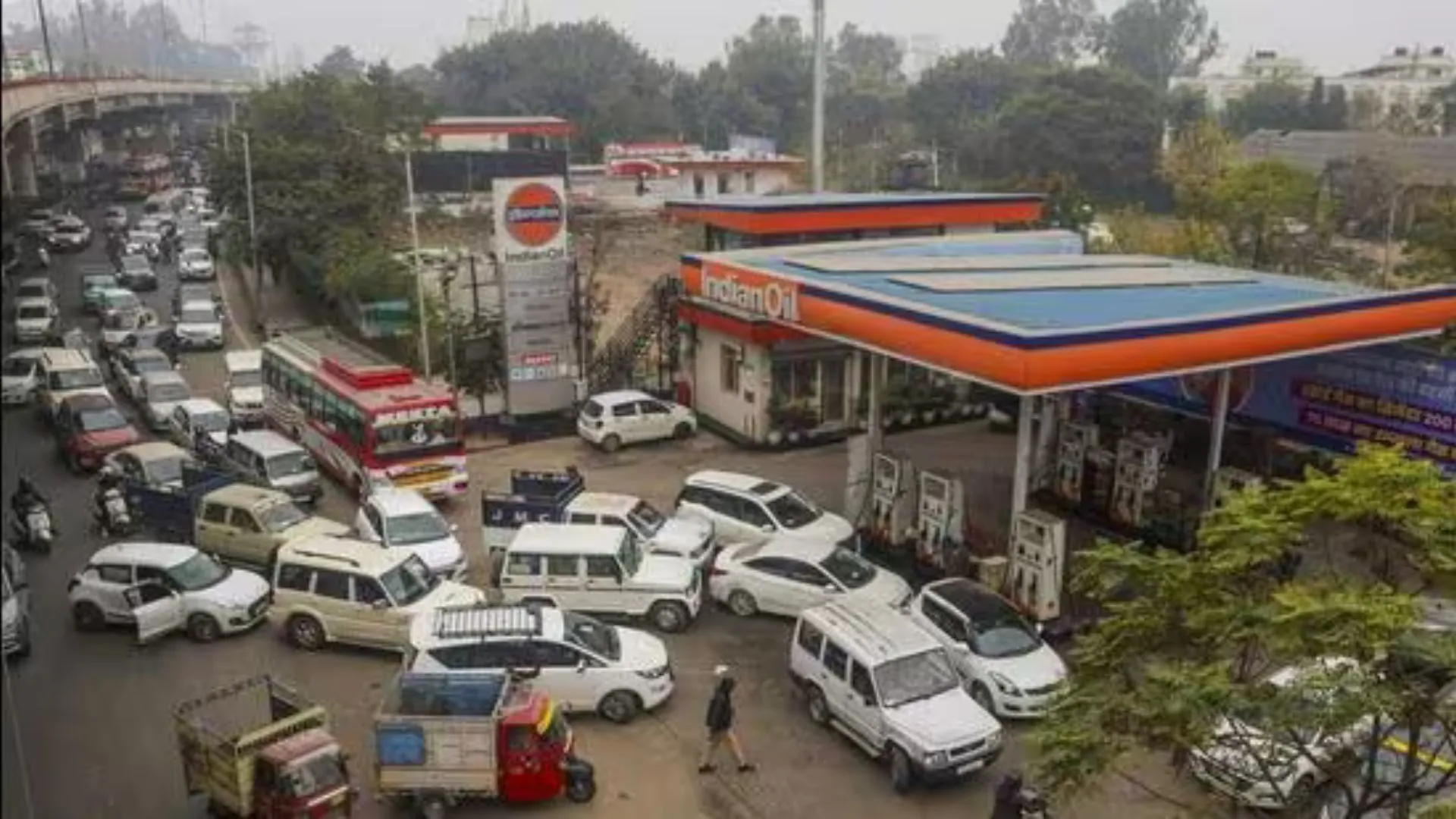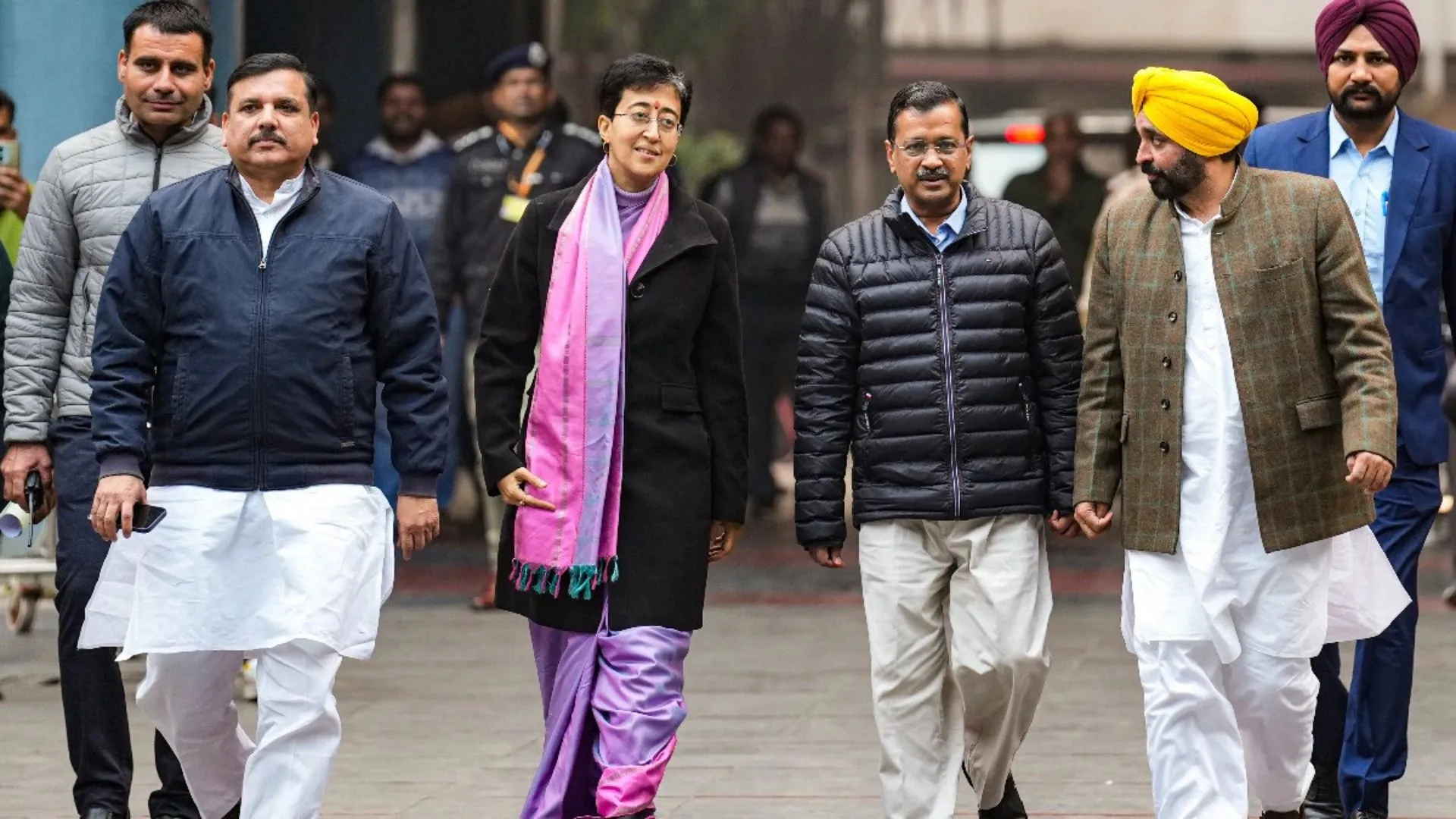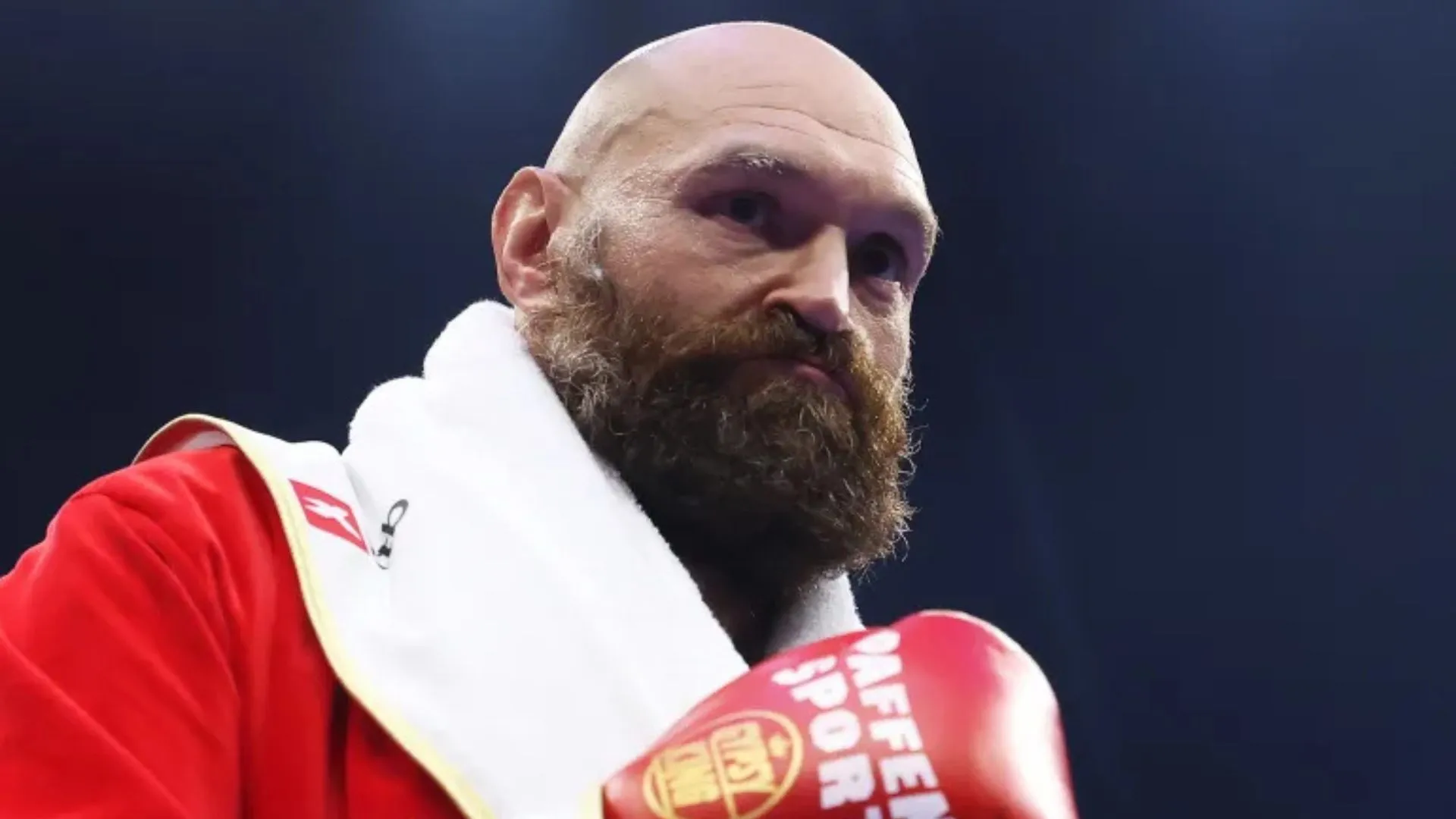Jamie Metzl, founder and chair of One Shared World and Shagun Sethi, Co Leader at One Shared World recently joined NewsX for an insightful conversation as part of its special series NewsX India A-List and shared their vision of an interdependent world, which is rooted at the core of One Shared World.
Speaking about One Shared World, its movement and what is it stands for, Jamie said, “If this virus and this terrible pandemic has shown us anything then it is that we are all deeply connected. Although there are some people who calling for building walls to protect people, we realise that we are all one humanity sharing this same planet. If we don’t come together to solve these kind of big global problems then we will get what we have, which is everybody suffering, every country suffering on its own. That was the big realization that others and I had in the earliest days of the pandemic. That the pandemic wasn’t just its own problem, it was the manifestation of a much bigger problem and that problem is that our species has very rapidly grown from a bunch of small mans of roaming nomads to this big global species with the ability to fundamentally transform or even end all of life on earth. Now we share all of these big global problems but while we have a structure for addressing our national problems, we don’t have sufficient structure for coming together to address our global problems. The way we believe that we can do that is by building an empowered global constituency, not of people who reject their countries but of people who love their countries, love the United Nations but believe that we need to have a group of people, an empowered constituency that is demanding that our common needs as humans sharing the same planet be met and that movement is what One Shared World is all about.”
When asked about the origin of One Shared World and whether it was the pandemic that made him come up with this idea, Jamie shared, “In the earliest days of the pandemic, I was invited to give a talk for Singularity University, on which I am on the faculty, which is like a University of the future. My book ‘Hacking Darwin: Genetic Engineering and the future of Humanity’ had just come out. I am an advisor to the World Health Organisation on Genetic Engineering and my talk was supposed to be about whether the tools of Genetic revolution are a match for the pandemic but that morning I woke up and I realized that there was a much bigger issue at play. Yes, we weren’t prepared for this pandemic. We were also not prepared for any pandemic so we were not able to respond to any of our big global challenges like climate change or ecosystem destruction or proliferating weapons of mass destruction. I felt that there was a through-line between all of those things, which is our inability as global species to solve global problems.
I gave that talk and I said what I said moments ago- we need to build and empower global constituency. That talk went viral. I stayed up all night and I drafted ‘Declaration of Interdependence’, put that up on my personal Jamie Metzl website. That went viral and I started to realise something bigger was happening. Here there were people all around the world who were identifying this same problem so I called a global meeting. We had, in our first meeting, about 130 people from 25 countries, including India and we decided that we needed to come together to build this. That was in April-May. On May 6th, we launched and we are now a community of people in 112 countries working together. Our declaration of interdependence has been translated into 19 languages, including Hindi, Tibetan and English. We are racing forward with major initiatives and amazing group of volunteers,” he added.
Having been one of the first people to be a part of One Shared World and embracing the volunteer spirit, Shagun expressed, “I think what is really exceptional about One Shared World is that all of us acknowledge that we have a unique moment that we are in and a unique opportunity. This pandemic has exposed these different cleavages of inequality across the world and it has brought us to the point where we have to now think that we have a chance to rewrite the future and a chance to think about what is coming next. We can build back and we can build back better. That is the spirit that brings people from all across the world together to work for One Shared World.”
She added, “One of the things that I am proudest of, which is the the heart and soul of our community, is our young leaders program so we have a coordinator group with over 50 coordinators from across 10 countries, including Africa, India, across the Europe, across the US, across Canada and all of these young people, who are in high school, universities, master, PHD students, there are all here because they believe that we as a youth have something to say and we want to take control of what is coming next. But that is not limited to the youth. We have members from top leadership to our entire volunteer base and it is completely on a non-paid Volunteer basis and that is just because we believe. We believe that there is better to come and we believe that we have something better to do with that. That is absolutely special.”
Reflecting on his journey and how it has led him to One Shared World,Jamie revealed, “I am the son of a refugee. My father and grandparents came to the United States after WWII, fleeing lives that were absolutely destroyed by Nazism. For me, that has always been a part of who I am and my core fundamental belief is that any society is only as safe as the most vulnerable people in that society. For me and all the work that I have done, both in the field of human rights and in thinking about where the world is heading as a futurist, that’s the job, it’s not just about imagining things for its own sake. It is trying to imagine where we are going, what are the implications of our most powerful technologies and how can we make sure that we use our most cherished values to guide the application of our most powerful technologies and that was why it wasn’t just my work in human rights and government that made me recognize that we need to build these kinds of more stable, more resilient solutions to our problems by empowering people. It was also through working with the WHO on future of genetic engineering. We now have these tools that will fundamentally transform life on earth and the question for us is will we use those tools wisely. We would not be able to make those kinds of decisions with just a few scientists and a few experts. Our world is democratizing, power is decentralizing and if we don’t take our next big steps forward together then everything we have built past decades and centuries could be lost. “
Highlighting the role of Indian youth in mitigating the challenges that we face as humanity, Shagun added, “Growing up as an Indian girl is a unique experience because we are constantly thinking about our safety, we are constantly thinking about what it means to be a woman. I think that this is my reason for working in human rights, that I had the privilege to go to sleep thinking that I can wake up and be safe. It is something that all women deserve. That got completely exasperated when I got into the US to do my masters. That’s where I was a brown Indian girl and a brown woman. That’s when my identity became evident. I very strongly believe that India’s superpower is its youth because we have something to say and there is something to be done. The one thing that I love about One Shared World is that it’s youth component is not tokenistic. We are at the table, from the get go. We are there to plan, implement, do all the social media, talk about it and that is what is special. I strongly believe that we as a youth have something needs to be said, we have a voice that is inclusive and we have the power in us to bring about a change. One Shared World is a platform to really bring that change. I invite all of India’s youth.”
Summing up with some of One Shared World’s recent initiatives, Jamie said, “One of our biggest initiatives is our initiative on water sanitation hygiene and protection. Gandhiji showed us all the way, that we need to have a big vision and that we need to empower people at all levels to realise that vision. We have been working with everybody at all levels from national governments and we certainly had a very close alliance and partnership with the Indian government, with ministers like Suresh Prabhu and others, with society groups and others, calling for world leaders and the world to come together to guarantee that everyone on earth has access to clean water, basic sanitation, hygiene and essential pandemic protection by 2030. We were thrilled when G20 leaders included the essence of the language, which we had provided in their leaders final communicae released in November from Riyadh. We believe that this is creates a big foundation but we are now working very actively at all levels to guarantee that everybody has access to these basic ingredients of a safe and dignified life. Not because it is charity, not because it’s wealthiest people are helping poorest people but because the essence of interdependence is that your safety is my safety. If the most vulnerable people on earth are more susceptible to pandemic like Covid-19, it is not just bad for them but bad for all of us.”

